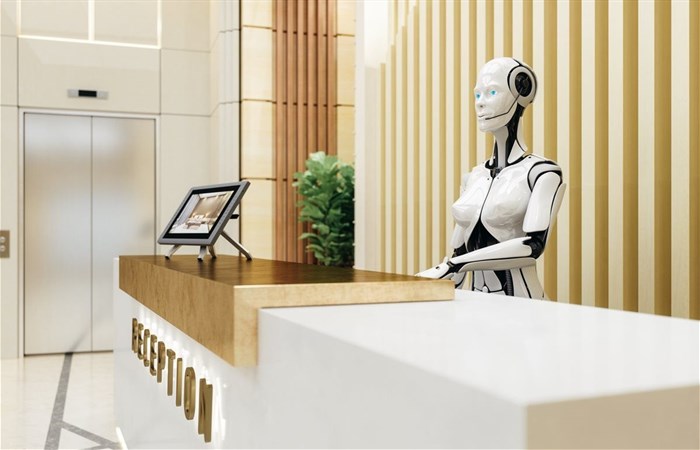
Top stories






More news







Logistics & Transport
Uganda plans new rail link to Tanzania for mineral export boost











From AI and automation to virtual travel and the rise of smart rooms, here are the top tech trends that I believe will dominate the hospitality industry.
As a business solution, artificial intelligence continues to advance, becoming more reliable and appealing. Those in the travel industry rely heavily on providing exceptional customer service to establish our reputation, and AI technology is a powerful tool for achieving this goal. In the hotel industry specifically, one of the most promising applications of AI is providing online assistance to customers through chatbots and instant messaging apps. Chatbots are able to answer common guest questions, provide information about local attractions, and even book reservations for restaurants or activities.
Additionally, AI and machine learning technologies that analyse guest data, including their preferences, booking history, and feedback, can be used to tailor recommendations, provide customised offers, and deliver personalised services that meet guests' individual needs. For instance, if a guest typically books rooms with a king-size bed, the hotel could automatically offer a king-size room when the guest books their next stay.
We’re constantly looking for ways to improve the guest experience and as such, have recently launched our own chatbot service, which provides our guests with 24-hour assistance over WhatsApp. This technology has allowed us to streamline our own operations, for example; improve efficiency and save time and money while providing our guests with excellent customer service. Since integrating our chatbot service into our website, the number of guests who have engaged with us is far greater than we anticipated.
Another application of AI is how it is being used in conjunction with robots. I remember sitting at a conference a couple of years ago where they introduced the lobby robot that would serve as a lobby host, answer enquiries, etc. I was instantly turned off and felt very defensive - subconsciously I was feeling defensive about the survival of a hotel receptionist.
Hotel robots have now been implemented in several hotels around the world, and very few, if any, have been a complete success. Far fewer jobs have been lost than what was anticipated - in fact, I would argue that there is a larger market of guests who would choose to stay in a hotel with real people rather than with robots. Travel can be lonely and daunting, and people want to connect with people who can listen to and empathise with them, and problem-solve with EQ. We haven’t reached the technological level yet where robots have the thoughtfulness and compassion that human beings do.
But on the other side of it, I recently stayed in a hotel in Amsterdam that engaged with me via WhatsApp prior to my arrival, and I loved it. I was able to have most of my questions answered before I even reached the hotel, and overall it definitely enhanced my experience.
So after some reflection, I have come to learn that guests love high touch as well as high tech, and shifting my mind from defending the longevity of my team, to rather asking how we can better serve our guests, has helped me embrace this change and shift in hospitality.
Moreover, the rise of smart features in hotel rooms has been a significant game-changer in the hospitality industry. With the advent of mobile apps and keyless entry systems, guests can now access their rooms without the need for traditional room keys. Smart thermostats, lighting, and entertainment systems provide guests with personalised control over their room's ambience, allowing them to customise their stay to their preferences.
Furthermore, in-room voice assistants can assist guests with ordering room service, making reservations, or providing local recommendations. When thinking about incorporating smart features in guest rooms, it is imperative to have robust cybersecurity measures in place to protect guest data from cyber threats.
Virtual travel has also been gaining momentum in recent years. In fact, according to a survey conducted by Booking.com, people are 46% more likely to visit a new destination if they have explored it virtually first. Virtual travel allows guests to experience a destination without actually being there physically. With the pandemic forcing many people to stay home, virtual travel has become increasingly popular as a way to explore the world from the comfort of one's own home.
Those within the hospitality sector can leverage this by using augmented reality (AR) technology to offer virtual tours of local attractions, showcase historical landmarks or artworks, or provide interactive experiences that educate guests about the hotel's history. Doing this will give guests a taste of what they can expect when they eventually visit your property. At Kruger Gate Hotel for example, we’ve launched a livestream webcam, which allows potential guests to experience real-time, uninterrupted views into the Kruger National Park that can be enjoyed from our pool viewing deck, before they visit the property.
Finally, with the rise of eco-tourism, many guests are increasingly conscious of the environmental impact of their travel choices. Hotels can differentiate themselves by implementing energy-efficient systems, reducing waste, and promoting sustainable practices. For instance, hotels could install smart thermostats and lighting systems that automatically adjust based on occupancy, reducing energy waste.
Hotels could also implement water-saving systems and use eco-friendly cleaning products. By prioritising sustainability, hotels can not only reduce their environmental impact but also appeal to guests who value sustainability and responsible tourism.
In the age of technology, hotels must adapt to meet guest expectations. Hotels that fail to embrace technological advancements risk losing market share to their competitors. Therefore, hotels must do more than merely keep up with the latest technological trends. They must proactively seek out innovative solutions that will improve their guest experience and stay ahead of the curve.